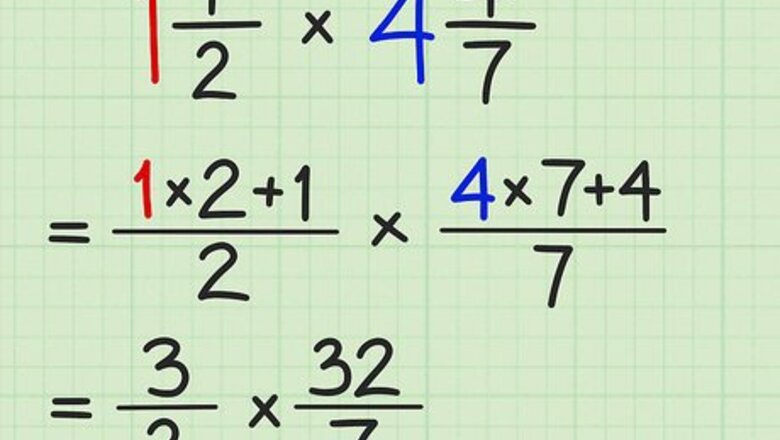
views
Multiplying Mixed Fractions by Mixed Fractions
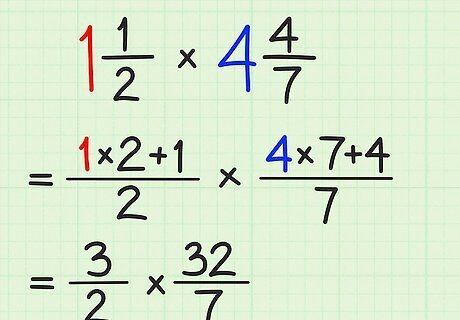
Convert the mixed fractions to improper fractions. To change 1 of the mixed fractions, multiply the denominator by the whole number. Then add the numerator. Place the result over the line and leave the denominator as-is. Repeat this for the other mixed fraction. For example, if you start with 1 1/2 x 4 4/7, change them to improper fractions. 1 1/2 will become 3/2 and 4 4/7 will become 32/7. Your equation will now by 3/2 x 32/7.
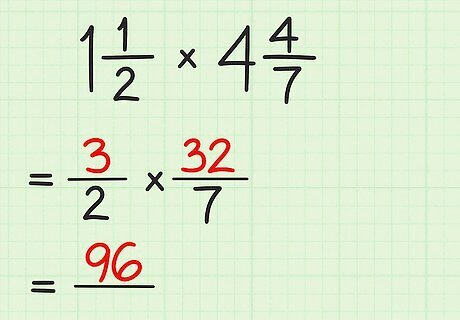
Multiply the numerators of the improper fractions. Now that you have 2 improper fractions and no whole numbers in the equation, multiply the numerators together. Write the result and place a line below it. The numerator is always the top number in a fraction. For example, with 3/2 x 32/7, multiply 3 by 32 to get 96.
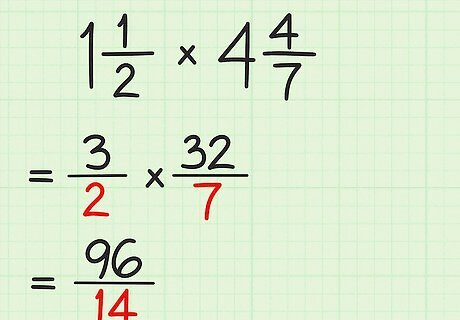
Multiply the denominators of the improper fractions. Multiply the numbers below the line and write the result under your numerator. For example, with 3/2 x 32/7, multiply the 2 by 7 to get 14.
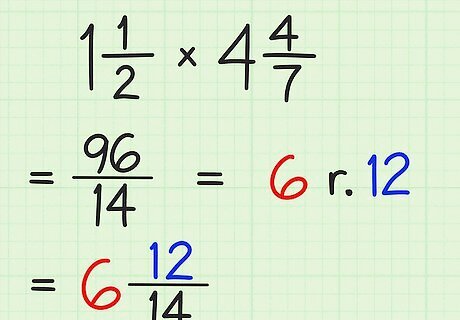
Turn the answer into a mixed fraction if possible. If the numerator of your result is larger than the denominator, see how many times the denominator will go into the numerator. Then leave put the remainder over the denominator to give you a mixed fraction. For example, if you got 96/14, see how many times 14 will go into 96. You'll get 6 with 12 left over. Place 12 over the denominator (14). Most instructors will want you to put the answer in the same form as the question. So if you started with mixed fractions, convert your answer to a mixed fraction.

Simplify further if possible. You'll probably end up with a whole number and a fraction. Look at the fraction and see if you can simplify it. For example, if you have 6 12/14, reduce 12/14 by 2 to get 6/7. In this example, your final answer will be 6 6/7.
Multiplying Fractions by Whole Numbers

Rewrite the whole number as a fraction. To rewrite a whole number as a fraction, simply place the whole number over 1. This will make an improper fraction. For example, if you have 5 x 8/10, put the 5 over 1. You should now have 5/1 x 8/10.
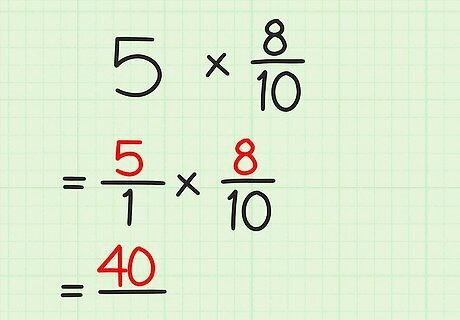
Multiply the numerators of the two fractions. Remember that the numerators are the numbers above the lines. Write the result and place a line below it. In the example, 5/1 x 8/10, multiply 5 by 8 to get 40.
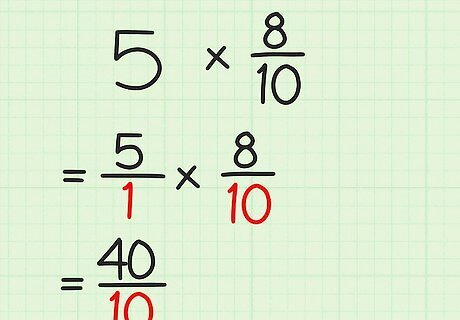
Multiply the denominators of the two fractions. Now you can multiply the numbers below the lines to get your denominator. You should now have an answer to your equation that's in fraction form. For example, if you're multiplying 5/1 x 8/10, multiply 1 by 10 to get 10. Place this below the line to get an answer of 40/10.
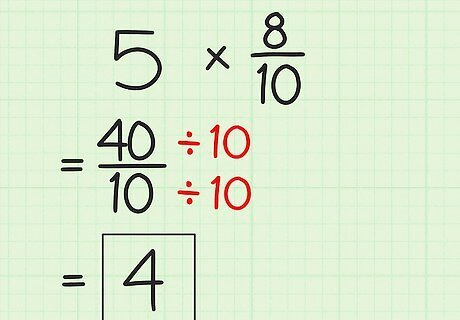
Reduce the answer if possible. Because your answer will probably be an improper fraction, simplify the answer to its lowest terms. Divide the numerator by the denominator to get a simplified result. To reduce 40/10, divide 40 by 10 to get 4 as your new answer. In many cases, you'll get a mixed number since the answer will have a remainder.
















Comments
0 comment